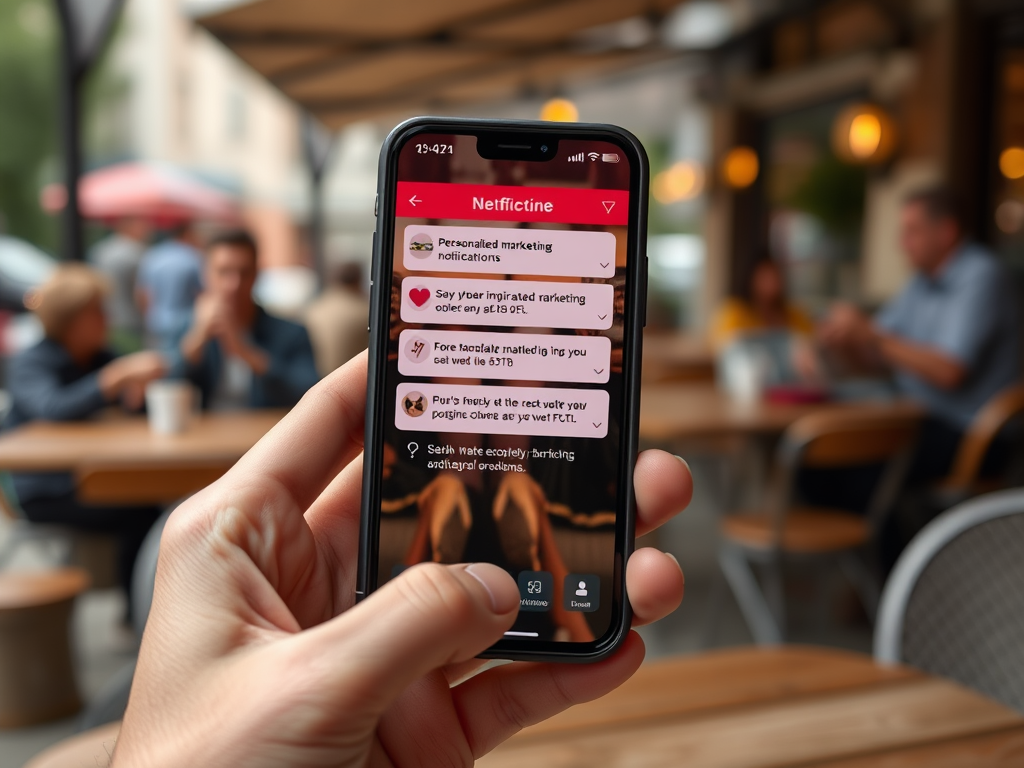In a digital landscape oversaturated with information, making a meaningful connection with consumers is more challenging than ever. Traditional marketing strategies fall short as audiences gravitate towards brands that show an understanding of their individual needs. Personalization stands out as a beacon of hope in this context—an approach that not only captures attention but also fosters loyalty. By tailoring experiences based on data-driven insights, companies can transform mere transactions into lasting relationships. This article delves into the myriad benefits of personalization in digital marketing communication strategy, highlighting its ability to enhance engagement and drive conversions, ultimately paving the way for customer loyalty.
Personalization involves more than just addressing a customer by their name; it’s about understanding their unique behaviors and preferences. With the advent of advanced data analytics, businesses can now glean insights into their customers’ habits and interests, allowing for a more tailored approach to marketing. Not surprisingly, brands that embrace personalization find themselves in a competitive advantage, resonating more profoundly with audiences. As we navigate through this article, we will explore key elements, customer engagement tactics, conversion rate improvements, and more, all rooted in the power of personalization.
Understanding Personalization

Personalization is all about customizing marketing communications to fit the unique characteristics of individual users. This level of tailoring happens at various touchpoints along the customer journey, informed by insights culled from user behavior, demographics, and preferences. At its core, personalization requires effective data collection techniques to understand what each customer cares about most, allowing for adaptive strategies that cater to each user.
- Data Collection: Gathering data on user interactions, purchase history, and preferences to inform personalization efforts.
- Segmentation: Dividing audiences into smaller groups based on similar traits to enhance the effectiveness of marketing messages.
- Automated Tools: Utilizing technology to streamline the process of delivering personalized experiences at scale.
It’s worth noting that as consumer awareness of privacy and data security heightens, businesses must navigate the complexities of using personal data responsibly. Transparency and user consent play a pivotal role in personalized marketing. A solid foundation of trust can lead to more fruitful engagements, essential for building long-term customer relationships. The more a consumer feels understood and valued by a brand, the more likely they are to respond positively to personalized messages, making it crucial to prioritize ethical practices in this area.
Enhancing Customer Engagement

Personalized marketing messages nurture a deeper connection between brands and their customers. Tailored communications resonate more with audiences, enabling businesses to foster not just engagement but genuine interaction. This transformative approach invites consumers to participate in a dialogue rather than merely receiving information. Being relevant matters. It’s no longer just about the message delivered, but how that message echoes the individual needs of the recipient.
| Personalization Strategies | Impact on Engagement |
|---|---|
| Personalized Emails | Higher open and click-through rates |
| Product Recommendations | Increased purchase likelihood |
| Tailored Content | Enhanced user engagement |
Engagement can be further amplified through interactive content that draws users in. Examples of such content include personalized quizzes, polls, and dynamic web features that adapt based on user input. By staying relevant and entertaining, brands can capture the attention of consumers, turning passive receivers into active participants. This interactive experience deepens user engagement and makes each customer feel valued in a personalized ecosystem.
Boosting Conversion Rates
The impacts of personalization extend beyond engagement; when executed effectively, it can lead to impressive conversion rate improvements. Tailoring messages to meet the specific needs and preferences of consumers increases the likelihood of them taking a desired action, such as making a purchase or signing up for a newsletter. Companies that invest in personalized marketing see a measurable lift in their key performance metrics, illustrating how powerful personalization can be in driving business success.
- Case Studies: Look at brands like Amazon and Netflix, which leverage personalization to deliver suggestions that resonate with individual users, resulting in higher conversion rates.
- Success Metrics: Many companies report conversion rates that are significantly higher after implementing personalized strategies, showcasing the tangible benefits of adopting this approach.
- Customer Feedback: Personalized messages often elicit more positive responses from customers, reinforcing their interest and encouraging further interaction.
It’s essential to measure the performance of personalization strategies constantly. Tracking conversion rates before and after implementation can provide crucial insights into the effectiveness of these efforts. Adapting strategies based on this data ensures continuous improvement, allowing brands to refine their personalization tactics and maximize return on investment.
Conclusion
In conclusion, personalization stands as a powerful catalyst in the domain of digital marketing communication strategies. Its benefits span across enhanced customer engagement, improved conversion rates, and the cultivation of brand loyalty. As businesses continue to focus on tailoring their marketing messages and strategies, understanding the unique nuances of personalization will be critical in establishing lasting connections with consumers. In an era where consumers seek meaningful relationships with brands, harnessing the power of personalization offers an invaluable opportunity for companies striving to stand out in a crowded marketplace. The journey of personalization is not merely a trend; it is a fundamental shift that paves the way for future marketing endeavors.
Frequently Asked Questions
- What is personalization in digital marketing? Personalization in digital marketing refers to the practice of tailoring marketing messages and content to meet the specific needs and preferences of individual consumers based on their behavior and data.
- Why is personalization important in digital marketing? Personalization is crucial because it helps brands connect with their audience on a deeper level, improving engagement, conversion rates, and customer loyalty.
- What are some examples of personalized marketing? Examples include personalized email campaigns, product recommendations based on browsing history, and targeted advertisements based on user interests.
- How can I implement personalization in my marketing strategy? You can start by leveraging customer data, using segmentation techniques, and utilizing automated marketing tools to deliver tailored messages to your audience.
- What tools can help with personalization? Various tools such as CRM software, marketing automation platforms, and analytics tools can assist with gathering data and implementing personalized strategies.


